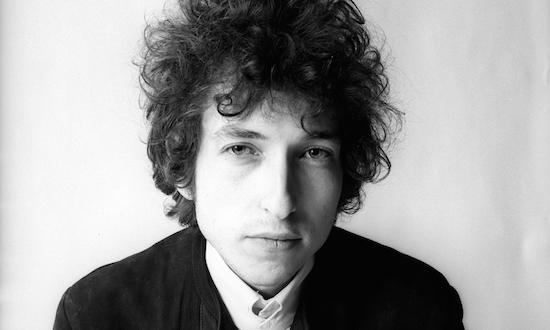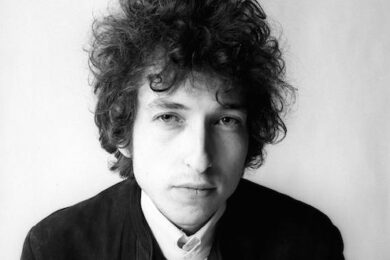Bob Dylan, Nobel laureate. A new fact so shocking that even the year’s most notable deaths have not outdone it for the volume (in both senses) of instant reaction; so divisive, it makes Brexit, the Labour leadership and the US Presidential election seem lesser ruptures. Those, at least, have each cleaved to two main positions, tending to align along social fault lines.
No siloing here, though. Opinion is not just split, it is fragmented, and one’s circle of acquaintance contains multitudes of it. First, it separates into camps of Yea, Nay, and Wahey! That is, those who think it’s a very good thing, those who are agin’ it, and those who think it a splendid jape – and who may also cross over into one of the other two camps, usually the second.
The Yeas are relatively uniform. They view Dylan as one of the greatest artists of his or any era, who deserves to be taken as seriously as any litterateur. Where they vary is in some cases not even accepting the distinction: Dylan in their eyes is a literary titan, and the award of the Nobel Prize for Literature is simply official affirmation of what they already knew. The general sentiment among the Yeas is, no accolade is too high for their man; and the Nobel being, literally, the gold standard among prizes, it is surely his due.
The Nays are more diverse. First of all, there are those who simply don’t care for Dylan, or at least, don’t think he’s that great. Some of the former sound very much as if they are afflicted with the kind of contrarianism inevitably bred by cultural orthodoxy – Dylan is overwhelmingly rated a giant and a marvel, the acclamation of whom they feel to be de rigueur; and rather than judge for themselves, they embrace the opposite view. This impulse – which like most contrarianism is in essence the narcissistic negative of conformity – becomes somewhat easier to sympathise with when set against the most ardent Bob fans and obsessive Dylanologists. Next to these, Beliebers and Directioners seem well-balanced, open-minded and tolerant of critical dissent.
Plenty more of the Nays sound perfectly sincere, though. They may genuinely dislike Dylan; they may even enjoy or admire him, but just don’t think he’s all that. Fair enough. The reaction of such folk seems to be chiefly amazement tinged with befuddlement: they’ve given him what? You’re kidding me. With such folk, one can have no argument. It really is a matter of taste, and de gustibus…, and all that.
Yet another variety of Nay is that which thinks the Nobel committee has made a glaring category error. The prize is for literature. Dylan is a songwriter. Here is where the argument starts to get interesting, because here is where it is no longer a question of either cultural orthodoxy or personal taste. I have seen quite a few folk whom I know to be both fair minded and, as it happens, Dylan fans, take up cudgels for this position. To them, it’s not necessarily that Dylan doesn’t merit the highest honour. It’s that he doesn’t merit this specific highest honour, in the way a champion pole vaulter shouldn’t be given a medal for the long jump. It is in this group that the Wahey!s are mainly to be found, firing off jests, or mock solemnly reciting Dylan’s sillier lyrics as if these are entirely representative of his oeuvre.
The question now becomes about defining your terms. What is literature? Unless we allow it to encompass the oral tradition from which it grew, which means taking it back to Homer and beyond, it demands the written word – poetry and prose. Dylan is no slouch at the written word, both in its own right, and transcribed from his lyrics, which have often been acclaimed as poetry and may well stand up as such. But that is not his métier. He is principally a recording artist, and if he weren’t, it is unthinkable he would have had such an impact. He is to be heard first and read second. Well, what about plays, you could reasonably ask. Is Shakespeare not great literature? Yes, obviously: but his work is great literature even to those who have never known it performed. The same is evidently not true of Dylan. Without music, there is not the faintest chance his words would now be garlanded as they are. And lyrics should not need to stand on their own; many of Dylan’s do, but in common with other great lyricists, he has written plenty that falters on the page but soars in song.
On another front of the category-error argument are the insufferable fogeys who think the award is an outrage upon literature itself. That the problem is not simply a mistake may have been made about definitions, but that awful vulgarians are encroaching upon their sacred places. Dylan, to them, is the harbinger of the low-culture mob; the latest in an unending number of final straws, or the thin end of a wedge that never seems to get thicker. They have a curious mirror image and inadvertent ally in diehard Poptimists, another subset of the Nay/Wahey! crossover, whose view might be summarised as, "LOL whut!? Calm down dear, it’s only pop music…" As if taking pop music lightly, which is one of the great joys of it, precludes also taking it seriously, which is another. All doctrine is ultimately the death of joy – even when the doctrine is the elevation of the light above the serious, because joy is too varied and elusive ever to confine itself to one or the other.
This, at last, brings me to my own view about Dylan’s Nobel prize. Which is, I’m firmly in the Nay camp. I do think the award is a category error, but that’s not why. Not in itself. What bothers me is the perceived status of the categories. If pop lyricists were routinely considered for the prize as are authors and poets, I’d still think it mistaken, but I wouldn’t much care. But I am quite certain that Joni Mitchell and Leonard Cohen, for example, both at the very least Dylan’s equals as writers, have never been in the running and never will be. The award is no affront to literature; it is an insult to pop music. It is a condescending ruffle of pop’s hair while handing it a lollipop. An act of beaming condescension whose transparent message is: "This one guy, and just this one guy, he’s so good, he transcends his trivial idiom and elevates himself into our significant one." In that, it continues something which has been going on long enough – 50-plus years – to become a tradition of its own: the singling out of Dylan as a special case in what is by implication dismissed as an inherently inferior medium. The point is not that Dylan doesn’t need a Nobel to attest to how good he is (although he doesn’t.) It’s that pop music, pop music of any kind, doesn’t need the Nobel committee to damn it with the faint praise of such an award to its sole chosen representative. "Look, dear! How adorable. When pop music tries its very hardest, it can be almost as good as Sven Hassel."
There’s no reason – not yet, anyway – to believe Dylan himself endorses such an attitude; or that he would think of himself as a more profound and worthy recipient than, for instance, any of the brilliant Motown or girl-group lyricists who are more likely to be awarded a Nobel prize for chemistry than for literature. Whether there is more truth and humanity in his best lyrics than in Abba’s, or less, is unquantifiable, and it would be meretricious to attempt such a calculation in contesting an argument he has been dragged into. The same is true of ranking him thus against any work of literature. He has been made, through no fault of his own, the object of odious tokenism. Pop music, across its countless iterations, is a vast, amazing, thrilling art form. All life is in it. It stands for itself. The same is true of literature, but nobody feels compelled to toss Philip Roth a grammy just to prove it. If they did, I hope he would tell them where they could stick it. Dylan may, for whatever reasons of his own, do nothing of the sort with the Nobel committee. Up there on Parnassus, that is his unquestionable prerogative. But here on my anthill, it’s mine to say: oh, do piss off, you ineffable snobs.



